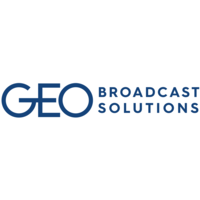The chorus of naysayers to the voluntary use of FM boosters to originate hyperlocal programming — and give some broadcasters that much-desired “addressable advertising” opportunity so many marketers desire today — has just expanded significantly.
Every State Broadcasters’ Association in the U.S. has voiced its opposition to the plan.
This puts the SBAs in alignment with the NAB, which has stepped up its efforts to get the FCC to decline a proposal from GeoBraodcast Solutions to get its “ZoneCasting” technology cleared for takeoff.
“ZoneCasting” is based on the premise that an FM booster, until now a “fill-in” signal for a radio station experiencing penetration issues due to terrain or other line-of-sight hindrances, can serve as an origination point for broadcasts.
Technically speaking, GeoBroadcast Solutions says it works, and successfully tested “ZoneCasting” at KSJO-FM 92.3 in San Jose, Calif., and at WRBJ-FM 97.7, which uses a rimshot signal to reach Jackson, Miss. However, every market and every FM radio station is unique, and there are growing concerns that ZoneCasting’s use in other markets could create a cacophony of competing audio. This, the NAB argues, is a public safety issue.
So do the SBAs that signed a letter sent late Tuesday (7/12) to FCC Chairwoman Jessica Rosenworcel. They cite their collective concern on public safety and listeners, shared by NPR, too, the SBAs note. Then, there is the Federal Emergency Management Agency (FEMA), which has expressed concerns on ZoneCasting’s impact on the Emergency Alert System (EAS).
The SBAs, which represent the 50 U.S. states, the District of Columbia, and the territories of Puerto Rico, American Samoa, Guam and the Northern Marianna Islands, say, registered their “strong opposition” to GeoBroadcast Solutions’ proposal.
First, it slammed GBS’s approach to geotargeting a radio audience, claiming that the use of FM boosters for program origination “would only undermine, rather than serve, listeners and local broadcasters.” This, the SBAs say, raises “serious concerns about this ne technology’s effect on local radio’s important public safety function and ability to provide the free, local news, information, and entertainment on which Americans rely.”
The groups then urge the Commission “to heed the expertise of the radio industry, which has expressed deep concern over the pending proposal.”
As examples of their concerns, the SBAs suggest that, should ZoneCasting be implemented, “it could be dangerous for a listener to suddenly lose access to an
emergency news update if they should happen to drive outside the zone where such information is broadcast. Similarly, drivers stuck in slow traffic caused by an emergency will take longer to traverse the area in which ZoneCasting disrupts radio service as the radio signal transfers from one booster to another. Listeners in this situation could lose clear radio service for an extended period of time, and at the worst possible time.”
While those concerns during the Loma Prieta Earthquake on October 17, 1989 would likely have squashed the concept of ZoneCasting in that era of Radio, how people consume audio today while on the road is vastly different. There’s streaming audio; podcasts; Spotify; YouTube; iTunes; and even a vintage CD or DVD player in use. In emergencies, perhaps a long-established designated station would be the go-to by a consumer, such as KCBS-AM & FM; KGO; or KQED in the San Francisco Bay Area. KSJO is a niche station at present, airing Bollywood programming.
Could the SBAs, NPR and the NAB be overreacting to the ZoneCasting plan? GBS has argued this is the case. But, the biggest issue tied to ZoneCasting, the SBAs second point made in the letter to Rosenworcel, is fiscal.
What impact could ZoneCasting have on rates at a time when ad dollars to linear advertising — television and radio alike — continue to shrink?
“[A]uthorizing ZoneCasting could have a devastating economic impact on the radio industry,” the SBAs say. “Specifically, if even one station in a market chooses to use ZoneCasting to sell ads that reach only segments of the market, other stations will be forced to respond either by: (1) reducing rates for ads that reach the entire market to match the ZoneCasting station’s cheaper rates for geotargeted ads; or (2) paying GBS’s exclusive licensing fees (and other costs) for the unwanted privilege to use its system. Thus, even though GBS describes its proposal as ‘voluntary,’ stations will be
forced to choose between being frozen out of the advertising market or signing up for
ZoneCasting. Either way, approving ZoneCasting will reduce ad rates and revenues for all
stations, including stations that choose not to use the system, and harm all stations’ ability to provide the free, local news, information, and entertainment on which 234 million Americans rely.”
Lastly, the SBAs believe ZoneCasting “will only further the competitive advantage of larger
stations over smaller ones, as larger stations will be better equipped to absorb the additional capital and operating expenses and withstand advertising losses while the industry’s overall share of the advertising pie contracts.”
It’s now up to the Commission to vote on whether or not ZoneCasting is in the public interest, or if it is the key component to a poison pill that could bring irreparable harm to AM and FM stations across the nation.





